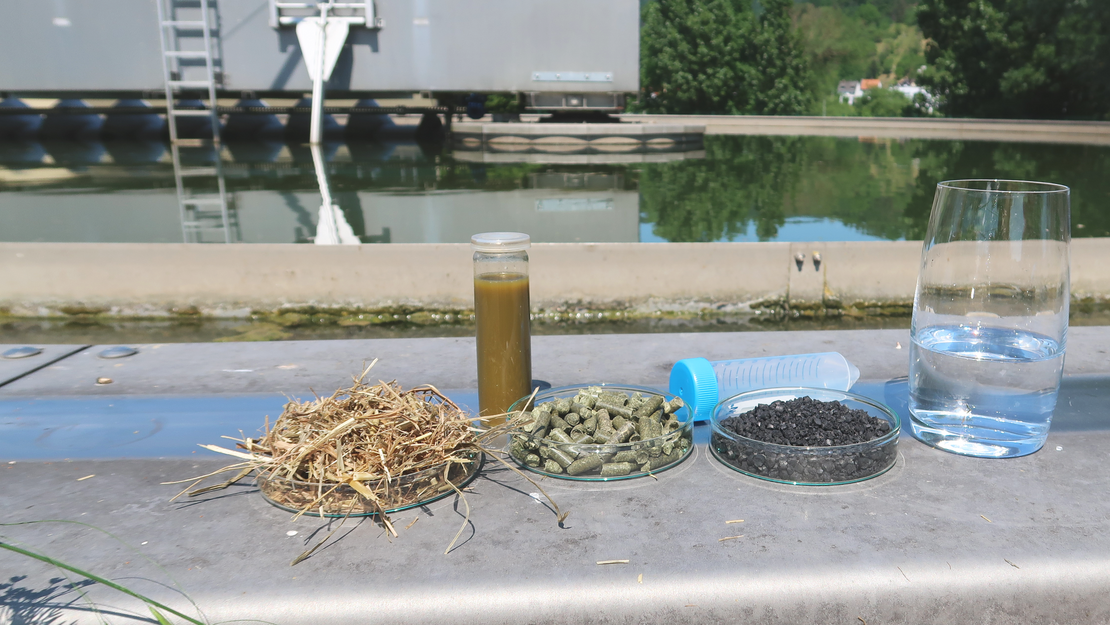This page contains automatically translated content.
Producing high-quality raw materials from residual biomass: New Research Group
 Image: University of Kassel/Korbinian Kaetzl.
Image: University of Kassel/Korbinian Kaetzl.How can we replace fossil raw materials and resources with biogenic equivalents and at the same time meet the increasing demands for nature conservation and environmental protection? What contribution can previously unused biomass potential make on the path to a sustainable and circular society? A new junior research group at the University of Kassel is now addressing these pressing questions. The research project is called "Biogenic activated carbons and platform chemicals from residual biomass for the implementation of a sustainable circular bioeconomy", or Bio4Actfor short, and is divided into four research areas.
"In order to achieve goals such as greenhouse gas neutrality and the preservation of ecosystems, we must not only increasingly develop renewable energy sources, but also replaceCO2-emission-intensive fossil resources with biogenic ones," says Dr.-Ing. Korbinian Kaetzl from the Department of Grassland Science and Renewable Resources at the University of Kassel and head of the junior research group.
In the first research area, previously unused residual biomass from landscape conservation is identified and processed using innovative methods. In the second research area, the researchers produce biogenic activated carbon from the solid phase obtained and then test it for its suitability for wastewater treatment, i.e. for its ability to remove micropollutants (including pharmaceutical residues) from municipal wastewater. Here, the junior research group is building on previous work by the "Environmental Process Engineering" working group at the University of Kassel. This group has already successfully produced activated carbons from residual biomass, which represent a much more sustainable alternative to fossil activated carbon. In the third research area, biogenic platform chemicals, i.e. basic chemicals made from renewable raw materials, such as lactic acid and succinic acid, are to be produced from the side streams of biomass processing. "Residual biomass and secondary raw materials produced during processing that are not suitable for higher-value material use are also to be made usable as energy sources in the form of biogas and solid fuel," adds Kaetzl. The final area of research is process evaluation by means of a life cycle assessment. The aim here is to determine and quantify the sustainability potential of the entire process chain and to evaluate the processes with regard to climate protection, water protection and ecotoxicity.
The project is funded by the BMBF funding line "Creative young researchers for the bioeconomy" with a total of three million euros and is scheduled to run for five years. The junior research group comprises three doctoral and two habilitation positions, as well as one technician position. The project is supplemented by a further post-doctoral position for accompanying research. Students can also contribute to the project with research work.
The Bio4Actjunior research group works closely with the Leibniz Institute for Agricultural Engineering and Bioeconomy e.V. (ATB) and thus contributes to the consolidation and intensification of the cooperation agreement between the University of Kassel and the ATB. In addition, integration into the "BiTWerk" cluster project and the SDG+ Lab at the University of Kassel is being sought in order to support knowledge transfer and networking.
Contact:
Dr.-Ing. Korbinian Kaetzl
University of Kassel
Department of Grassland Science and Renewable Resources
Phone: +49 561 804-1242
Email: kaetzl[at]uni-kassel[dot]de